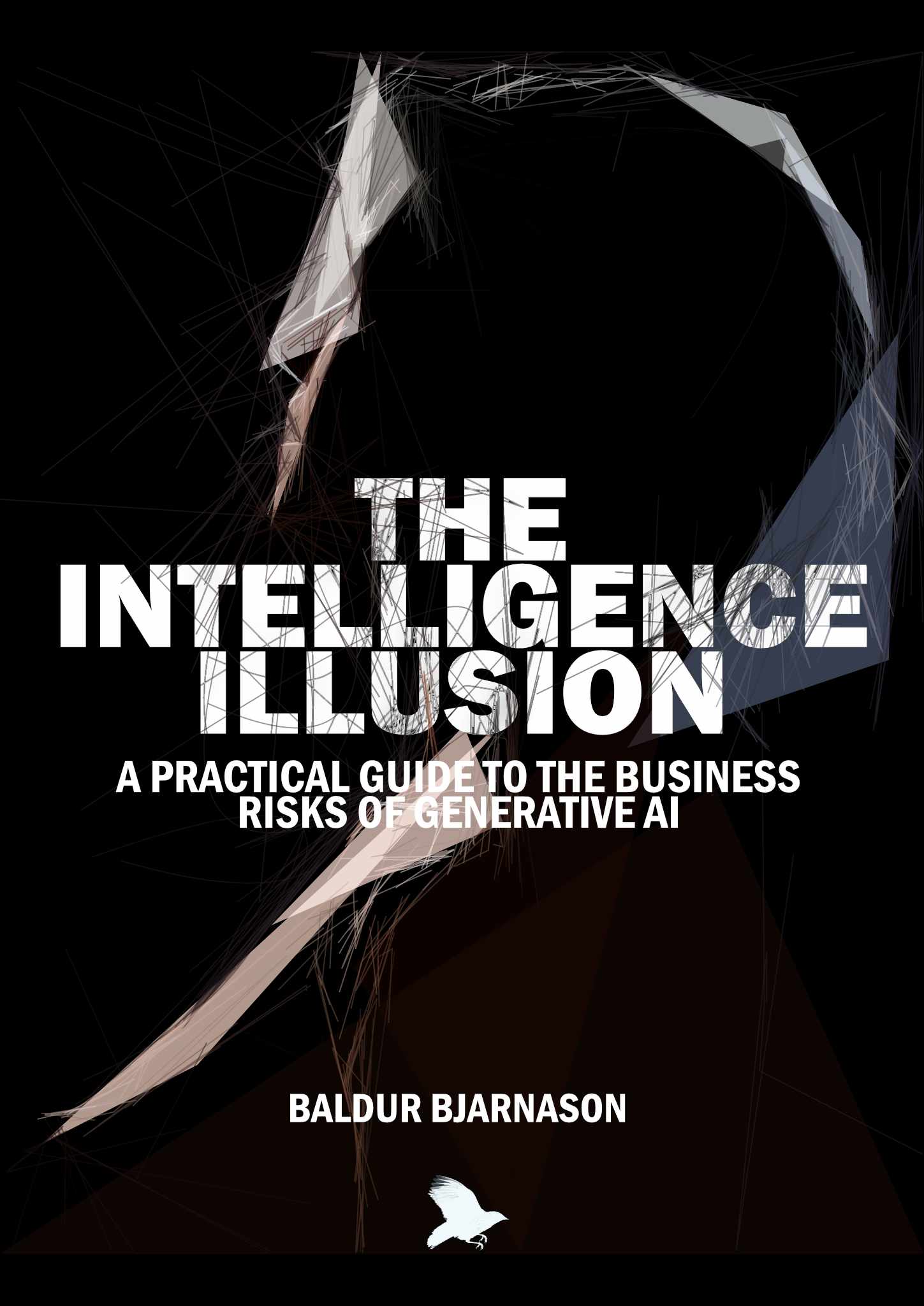Al-Sibai, Noor.
“Amazon Begs
Employees Not to Leak
Corporate Secrets to
ChatGPT.” Futurism, 2023.
https://futurism.com/the-byte/amazon-begs-employees-chatgpt.
Barr, Kyle.
“GPT-4 Is a
Giant Black Box and
Its Training Data
Remains a Mystery.”
Gizmodo, March 2023.
https://gizmodo.com/chatbot-gpt4-open-ai-ai-bing-microsoft-1850229989.
Birhane, Abeba, Vinay Uday Prabhu, and Emmanuel Kahembwe.
“Multimodal Datasets: Misogyny, Pornography, and Malignant
Stereotypes.” arXiv, October 2021.
https://doi.org/10.48550/arXiv.2110.01963.
Bourtoule, Lucas, Varun Chandrasekaran, Christopher A.
Choquette-Choo, Hengrui Jia, Adelin Travers, Baiwu Zhang, David
Lie, and Nicolas Papernot.
“Machine
Unlearning.” arXiv, December 2020.
https://doi.org/10.48550/arXiv.1912.03817.
Coles, Cameron.
“3.1% of Workers Have Pasted Confidential
Company Data into ChatGPT.”
Cyberhaven, February 2023.
https://www.cyberhaven.com/blog/4-2-of-workers-have-pasted-company-data-into-chatgpt/.
Council, Stephen.
“OpenAI Admits Some Premium
Users’ Payment Info Was Exposed.” SFGATE, March
2023.
https://www.sfgate.com/tech/article/chatgpt-openai-payment-data-leak-17858969.php.
Di, Jimmy Z., Jack Douglas, Jayadev Acharya, Gautam Kamath, and
Ayush Sekhari.
“Hidden Poison:
Machine Unlearning Enables
Camouflaged Poisoning
Attacks.” arXiv, December 2022.
https://doi.org/10.48550/arXiv.2212.10717.
Feiner, Lauren.
“U.S. Regulators Warn They
Already Have the Power to Go After A.I.
Bias — and They’re Ready to Use It.” CNBC, April
2023.
https://www.cnbc.com/2023/04/25/us-regulators-warn-they-already-have-the-power-to-go-after-ai-bias.html.
Fraser, David.
“Federal Privacy Watchdog Probing
OpenAI, ChatGPT Following Complaint
CBC News.”
CBC, April 2023.
https://www.cbc.ca/news/politics/privacy-commissioner-investigation-openai-chatgpt-1.6801296.
“FTC Chair Khan and
Officials from DOJ, CFPB
and EEOC Release Joint
Statement on AI.” Federal
Trade Commission, April 2023.
https://www.ftc.gov/news-events/news/press-releases/2023/04/ftc-chair-khan-officials-doj-cfpb-eeoc-release-joint-statement-ai.
Inan, Huseyin A., Osman Ramadan, Lukas Wutschitz, Daniel Jones,
Victor Rühle, James Withers, and Robert Sim.
“Training
Data Leakage Analysis in
Language Models.” arXiv, February
2021.
https://doi.org/10.48550/arXiv.2101.05405.
“Intelligenza Artificiale: Il Garante Blocca
ChatGPT. Raccolta Illecita Di Dati
Personali. Assenza Di Sistemi Per La Verifica
Dell’età Dei Minori,” March 2023.
https://www.garanteprivacy.it:443/home/docweb/-/docweb-display/docweb/9870847.
Kan, Michael.
“OpenAI Confirms
Leak of ChatGPT
Conversation Histories.”
PCMAG, March 202AD.
https://www.pcmag.com/news/openai-confirms-leak-of-chatgpt-conversation-histories.
Kumar, Vinayshekhar Bannihatti, Rashmi Gangadharaiah, and Dan
Roth.
“Privacy Adhering Machine
Un-Learning in NLP.” arXiv,
December 2022.
https://doi.org/10.48550/arXiv.2212.09573.
Lee, Dave.
“Someone Asked ChatGPT If It Had a
Signal... And It Gave Him *MY
NUMBER*.” Twitter, February 2023.
https://twitter.com/DaveLeeFT/status/1626288109339176962.
Lomas, Natasha.
“FTC Settlement with
Ever Orders Data and AIs Deleted After
Facial Recognition Pivot.” TechCrunch, January
2021.
https://techcrunch.com/2021/01/12/ftc-settlement-with-ever-orders-data-and-ais-deleted-after-facial-recognition-pivot/.
Lopatto, Elizabeth.
“Big Tech Is Already
Warning Us about AI Privacy Problems.” The
Verge, May 2023.
https://www.theverge.com/2023/5/19/23730037/openai-ban-apple-banks-privacy.
McGowan, Emma.
“Is ChatGPT’s Use of People’s
Data Even Legal?” February 2023.
https://blog.avast.com/chatgpt-data-use-legal.
Mukherjee, Supantha, Elvira Pollina, and Rachel More.
“Italy’s ChatGPT Ban Attracts EU
Privacy Regulators.” Reuters, April 2023.
https://www.reuters.com/technology/germany-principle-could-block-chat-gpt-if-needed-data-protection-chief-2023-04-03/.
Pan, Xudong, Mi Zhang, Shouling Ji, and Min Yang.
“Privacy
Risks of General-Purpose
Language Models.” In
2020
IEEE Symposium on Security
and Privacy (SP), 1314–31, 2020.
https://doi.org/10.1109/SP40000.2020.00095.
Perrigo, Billy.
“Exclusive: The $2
Per Hour Workers
Who Made ChatGPT
Safer.” Time, January 2023.
https://time.com/6247678/openai-chatgpt-kenya-workers/.
Raieli, Salvatore.
“Machine Unlearning: The
Duty of Forgetting.” Medium, September 2022.
https://towardsdatascience.com/machine-unlearning-the-duty-of-forgetting-3666e5b9f6e5.
“Regulatory Framework Proposal on Artificial Intelligence
Shaping Europe’s Digital
Future,” February 2023.
https://digital-strategy.ec.europa.eu/en/policies/regulatory-framework-ai.
Rigaki, Maria, and Sebastian Garcia.
“A Survey
of Privacy Attacks in
Machine Learning.” arXiv, April
2021.
https://doi.org/10.48550/arXiv.2007.07646.
Shepardson, David, Diane Bartz, and Diane Bartz.
“US Begins Study of Possible Rules to Regulate
AI Like ChatGPT.”
Reuters, April 2023.
https://www.reuters.com/technology/us-begins-study-possible-rules-regulate-ai-like-chatgpt-2023-04-11/.
Shokri, Reza, Marco Stronati, Congzheng Song, and Vitaly
Shmatikov.
“Membership Inference
Attacks Against Machine
Learning Models.” arXiv, March
2017.
https://doi.org/10.48550/arXiv.1610.05820.
Simonite, Tom.
“Now That Machines
Can Learn, Can
They Unlearn?” Wired.
Accessed February 21, 2023.
https://www.wired.com/story/machines-can-learn-can-they-unlearn/.
Weidinger, Laura, John Mellor, Maribeth Rauh, Conor Griffin,
Jonathan Uesato, Po-Sen Huang, Myra Cheng, et al.
“Ethical
and Social Risks of Harm from Language
Models.” arXiv, December 2021.
https://doi.org/10.48550/arXiv.2112.04359.
Wiggers, Kyle.
“Addressing Criticism, OpenAI
Will No Longer Use Customer Data to Train Its Models by
Default.” TechCrunch, March 2023.
https://techcrunch.com/2023/03/01/addressing-criticism-openai-will-no-longer-use-customer-data-to-train-its-models-by-default/.
Writer, Robert LemosContributing, Dark ReadingMarch 07, and 2023.
“Employees Are Feeding
Sensitive Business Data to
ChatGPT.” Dark Reading, March 2023.
https://www.darkreading.com/risk/employees-feeding-sensitive-business-data-chatgpt-raising-security-fears.
Xiang, Chloe.
“OpenAI Is
Now Everything It
Promised Not to Be:
Corporate, Closed-Source,
and For-Profit.” Vice,
February 2023.
https://www.vice.com/en/article/5d3naz/openai-is-now-everything-it-promised-not-to-be-corporate-closed-source-and-for-profit.
Xiang, Chloe, and Emanuel Maiberg.
“ISIS
Executions and
Non-Consensual Porn
Are Powering AI
Art.” Vice, September 2022.
https://www.vice.com/en/article/93ad75/isis-executions-and-non-consensual-porn-are-powering-ai-art.
Yeom, Samuel, Irene Giacomelli, Matt Fredrikson, and Somesh Jha.
“Privacy Risk in Machine
Learning: Analyzing the
Connection to Overfitting.”
arXiv, May 2018.
https://doi.org/10.48550/arXiv.1709.01604.
